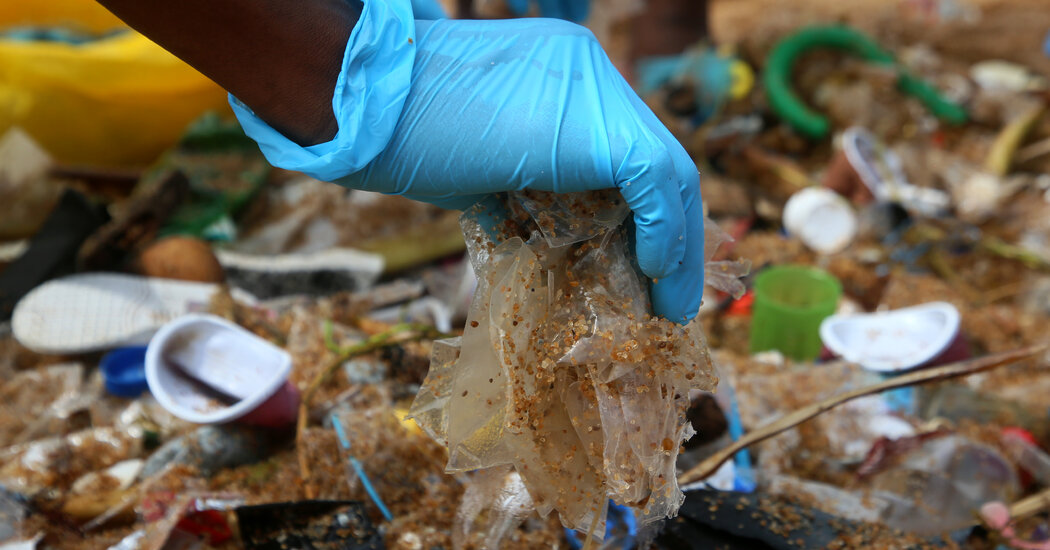Talks on the world’s first treaty to tackle plastic pollution will continue in coming months, delegates said.
Diplomats at a United Nations conference in Busan, South Korea, failed to reach agreement on the world’s first treaty to tackle plastic pollution on Sunday. They said they would reconvene in future months to try again.
At what was supposed to be the final round of talks, nations struggled to bridge wide differences that remained over critical issues, including whether the treaty should include limits on plastics production itself.
Some of the world’s largest producers of petroleum had vehemently opposed any measure that would restrict plastic production. The vast majority of the world’s plastic is made from petroleum.
Representatives from those countries argued, instead, that the treaty should stay focused on improving recycling and waste management.
Delegates gathered at the conference also remained far apart on the need to phase out some of the harmful chemicals used in plastic, as well as who should bear the costs of implementing the treaty.
Juliet Kabera, a delegate for Rwanda, which had led the push for a wide-ranging treaty, said a “small number” of countries had remained “unsupportive of the measures necessary to drive real change.”
“Rwanda cannot accept a toothless treaty,” Ms. Kabera said.
Saudi Arabia, which joined Russia, Kuwait and other oil-producing countries to oppose plastic production curbs, said nations needed to consider other approaches.
“If we address plastic pollution, there should be no problem with producing plastics,” said Abdulrahman Al Gwaiz, a Saudi delegate. “The problem is pollution itself, not plastics.”
Environmental groups urged nations to adopt an ambitious, legally binding treaty. Earlier in the weeklong negotiations, protesters in Busan rallied around a model of a sperm whale stuffed with plastic waste, displaying slogans like “Courage not compromise.”
The world produces nearly a half-billion tons of plastic each year, more than twice the amount produced two decades ago. Images of plastic trash on coastlines and river banks prompted calls for a global treaty to address the problem of plastic waste.
As of late Sunday in Busan, no date nor place had been announced for the next round of talks.
